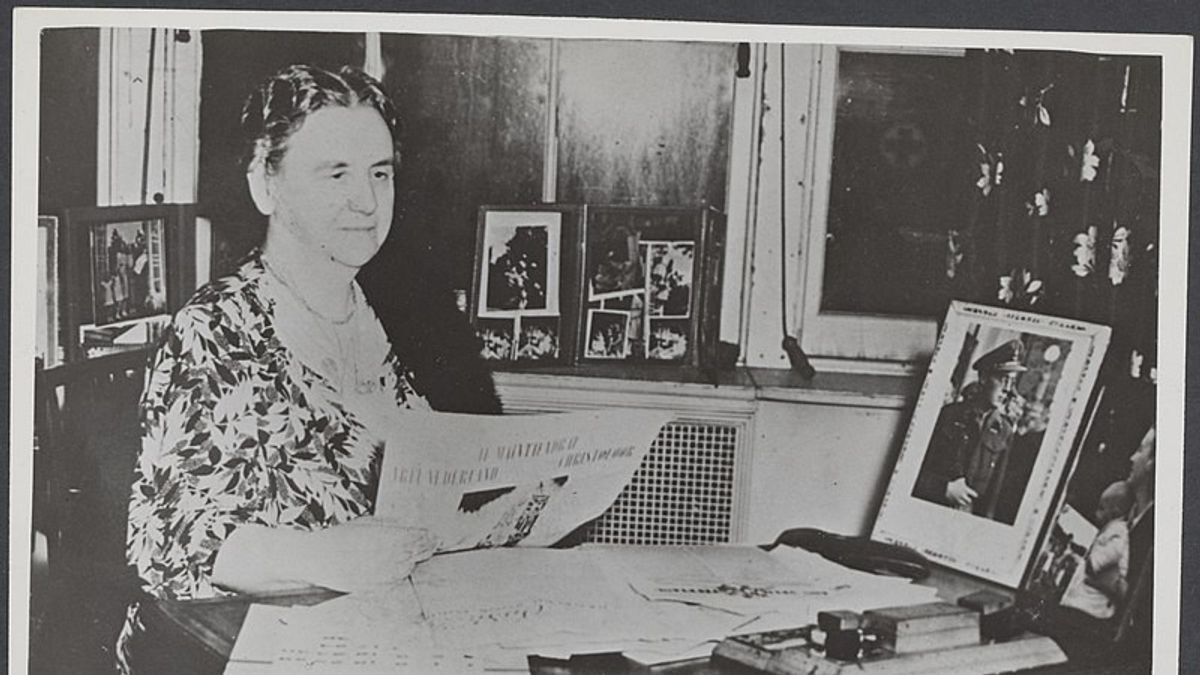JAKARTA - History today, 121 years ago, September 17, 1901, Dutch Queen Wilhelmina is preparing to accept ethical political responsibilities. This responsibility was carried out because of the emergence of a wave of protests against the Dutch who only took advantage of colonialism. Meanwhile, the natives whose lives celebrations were not lifted.
Everything has changed because of ethical politics. Public facilities, especially schools, were built for the bumiputras. Even because of the ethical politics of the seeds of a national revival that liberate the natives have emerged.
The destruction of the Dutch trading airline VOC brought a very deep wound to the colonial government of the Dutch East Indies. Instead of inheritance wealth, the VOC actually inherited a very large debt. Dutch leader Ratu Wilhelmina being dizzy is no joke. The Governor-General of the Dutch East Indies especially.
They also racked their brains to be able to return finances due to debts. Moreover, the debts increased due to the Java War which was spearheaded by Prince Diponegoro at 1825-1830.
Johannes Van Den Bosch later became a savior. The Governor-General of the Dutch East Indies perpetuated Cultuurstelsel (System Tanam Paksa) to gain a solid profit in 1830. This policy is believed to be a way to benefit from Javanese farmers through various mechanisms that require them to cultivate export crops.
The colonial government also gave Bumiputra officials the authority to oversee the running of the Paksa Plant System. The result was amazing. The Dutch made a big profit. Meanwhile, common farmers were blackmailed like dairy cows.
Men's tidal waves rushed into the forest that was being held for the construction of rice fields and gardens, and the wood was dragged out for fuel and housework. After the Javanese War (11825-1830), Dutch settlers also spread to the forest with commercial plantations, including new teak tree plantations. The colonial government imposed a cruel forced planting system, but it was very profitable.
"Under this system, some Javanese farmers are forced to work on plantations for a certain period of time every year, and some have to plant some of their own land with commercial plants Tobacco, sugar cane, rubber, coffee, tea, cocoa, tilapia, pepper which Dutch businessmen and the Dutch government can buy for export, in exchange for very cheap prices for farmers who plant it, said George bantoms in the book Bali Marital (2021).
The Paksa Plant System also received criticism from the Dutch themselves. Most of the activists view the Dutch power in the Dutch East Indies as a heinous act. Because, the Dutch do not care about the life celebrations of the Bumiputras who incidentally own their hometowns.
The criticism and anger were also contained. At its peak, Queen Wilhemina herself announced that the Netherlands was preparing to carry out ethical politics on September 17, 1901. A study that made the Dutch have a moral responsibility to improve the lives of the natives in the Dutch East Indies. From the standard of living to education.
Sometimes the ethical colonial politics is often called political externalistic, namely government politics that wants to take care of the interests of the country's children without involving the country's children. liberal moralists responded by calling ethical colonial politics an obligation of the nation to progress towards the backward.
With other words, ethical colonial politics is the implementation of ideas that are contained in the theory of the secret or the white man's burden. So it is the sacred duty (missonacre) of Europeans to advance the nation's civilization," explained G. Moedjanto in the book Indonesia Abad 20th Volume 1 (1989).
The English, Chinese, Japanese, Arabic, and French versions are automatically generated by the AI. So there may still be inaccuracies in translating, please always see Indonesian as our main language. (system supported by DigitalSiber.id)











